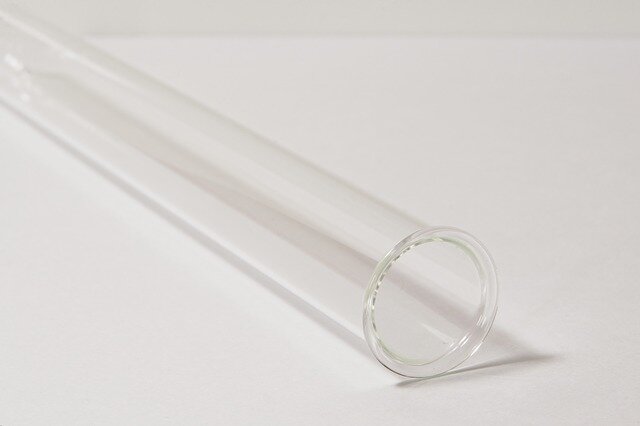QUIT HEROIN
Imagine, for a moment, the analogy of a child trapped in a well. After an unlucky slip, the toddler falls into a dark pit. His only comfort is the solid ground upon which he lands. Every other element causes fear – the fall, the darkness, the isolation and uncertainty.

Heroin addiction is a lot like that. Except there’s no solid ground upon which to land. Heroin abusers tumble into addiction’s abyss with nothing to stop the fall except jail, death or complete loss of everything in life. I know because I took the tumble. But there is a way out.
I’m not writing this article from an academic perspective. I’m not a therapist, psychiatrist or psychologist. What I have to offer is my experience quitting heroin. I’ve also worked with many addicts and their families to help nourish freedom from heroin addiction. So I’ve seen what works and what doesn’t.
I know how to quit heroin because I’ve done it. And you can too. I’ve been sober from heroin and other mind-altering substances for two years. Not particularly long when it comes to staying sober from alcohol or marijuana. Heroin, however, is a different animal.
This article is structure to reflect the process that usually occurs when someone quits heroin. There’s the precovery stage, where a heroin addict wants to get sober but can’t quit. This stage can sometimes last years, but it can be expedited with the exercises listed below. Find more here to buy 4f-MPH for sale.
Then there’s the withdrawal and detox phase. A lot of people can’t quit heroin because of painful withdrawal symptoms. I’ll show you that, regardless of your method of heroin detox, it is possible to fight through heroin withdrawal.
Next there’s early recovery. This phase is usually defined as anyone with less than one year sober from mind-altering substances. During this time, many people relapse due to post-acute withdrawal symptoms or a weak program of recovery. Heroin addicts who stay sober for one year or longer usually follow four simple suggestions. They actively work with a sponsor, designate a home group, meditate regularly and have sober friends.
Finally, there’s the long-term recovery phase. In this stage, a heroin addict has been sober for more than one year, is stable financially and emotionally and works a solid program of recovery.
Unfortunately dope is hardest drug to stop abusing. It beats out cocaine, crack cocaine, methamphetamine, prescription drugs and alcohol in the difficulty department. That’s the bad news.
The good news is sustained sobriety – consistent abstinence – from heroin is possible. It’s no walk in the park. But most good things in life require commitment and perseverance. Staying sober from heroin is no different.
There are a variety of methods to quit using heroin. I’ve tried to include all of them in this article even if I disagree with the particular practice. Some have higher success rates than others which I’ve noted next to the method’s name.
For many heroin addicts, the financial resources to detox and enroll in an inpatient heroin treatment program are simply not there. These individuals must grow a very strong desire to stop using, as the process to get clean will be much more difficult.
In conclusion, heroin addiction is a relentless descent into an abyss with seemingly no solid ground to halt the fall, often leading to dire consequences such as jail, death, or complete life upheaval. The author, drawing from personal experience and the insights gained from working with addicts and their families, sheds light on the challenging journey of quitting heroin. The narrative emphasizes that, despite the formidable nature of heroin addiction, there is a viable way out.
This article follows the trajectory of quitting heroin, detailing the precovery stage, withdrawal and detox phase, early recovery, and long-term recovery. It offers practical insights into overcoming the obstacles that often hinder individuals from breaking free from heroin's grip. The author underscores the difficulty of quitting heroin, ranking it as one of the hardest drugs to stop abusing, yet provides hope by affirming that sustained sobriety is attainable with commitment and perseverance.
While acknowledging the diversity of methods to quit using heroin, the article emphasizes that success rates vary. It recognizes the financial challenges faced by many individuals seeking recovery, highlighting the importance of a strong desire to quit for those without access to extensive resources.
In essence, the journey to quit heroin is depicted as a challenging but surmountable path, requiring dedication, resilience, and a tailored approach to suit individual circumstances.
FAQs about Quitting Heroin
-
What is the precovery stage in quitting heroin?
- The precovery stage is when a heroin addict desires to get sober but struggles to quit, sometimes lasting for years. The article suggests exercises to expedite this phase.
-
How can one overcome painful withdrawal symptoms during heroin detox?
- Regardless of the detox method, the article asserts that it is possible to fight through heroin withdrawal, providing hope for those deterred by the physical challenges.
-
What are the key suggestions for early recovery from heroin addiction?
- Early recovery, defined as less than one year sober, involves actively working with a sponsor, having a home group, regular meditation, and cultivating sober friendships to prevent relapse.
-
What defines long-term recovery from heroin addiction?
- Long-term recovery is characterized by sobriety for over one year, financial and emotional stability, and a solid program of recovery that includes essential elements like sponsor support.
-
Is sustained sobriety from heroin achievable despite its difficulty?
- Yes, the article affirms that sustained sobriety from heroin is possible, albeit challenging. It emphasizes that commitment and perseverance are crucial, aligning with the belief that most good things in life require dedication.